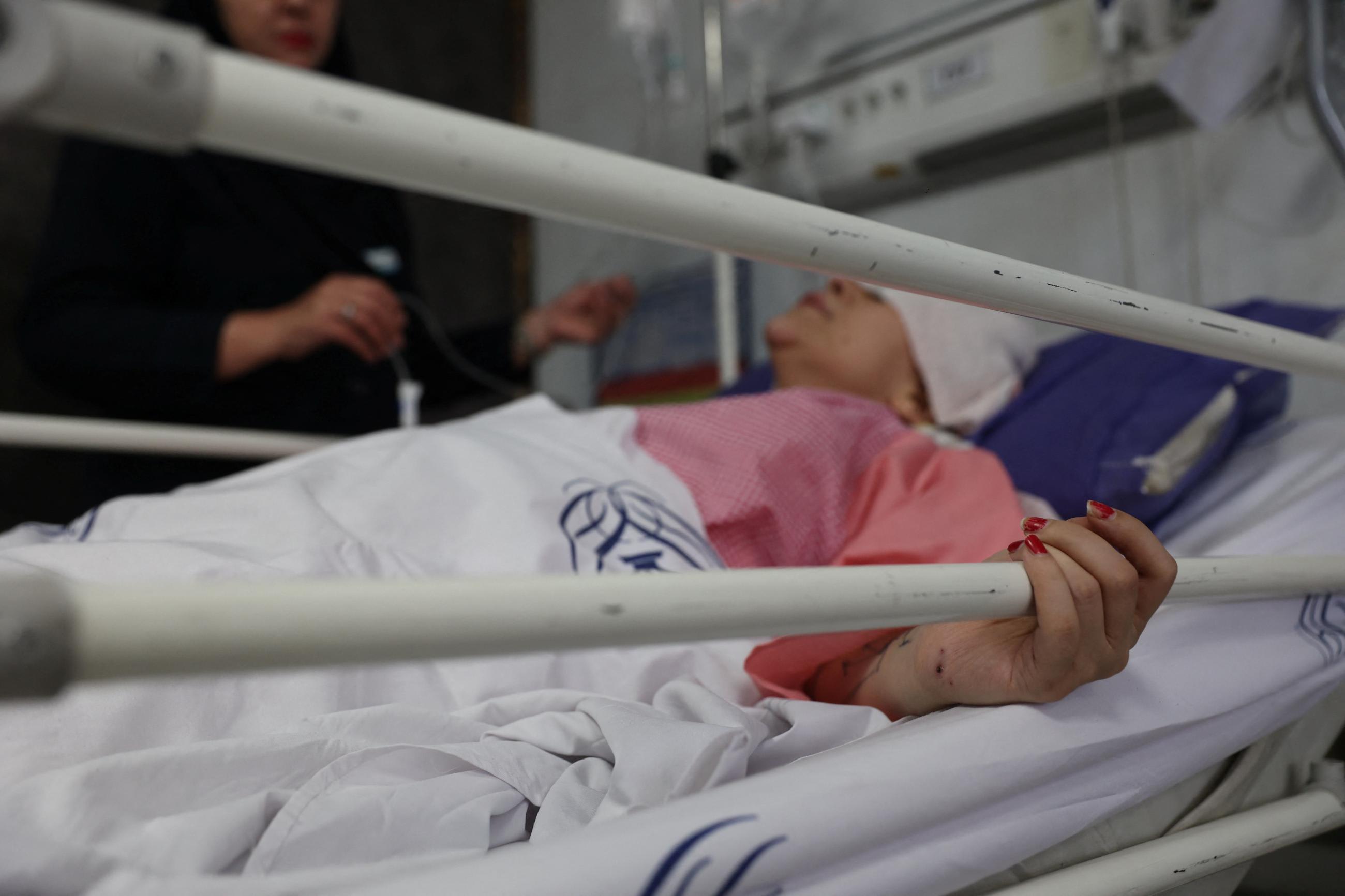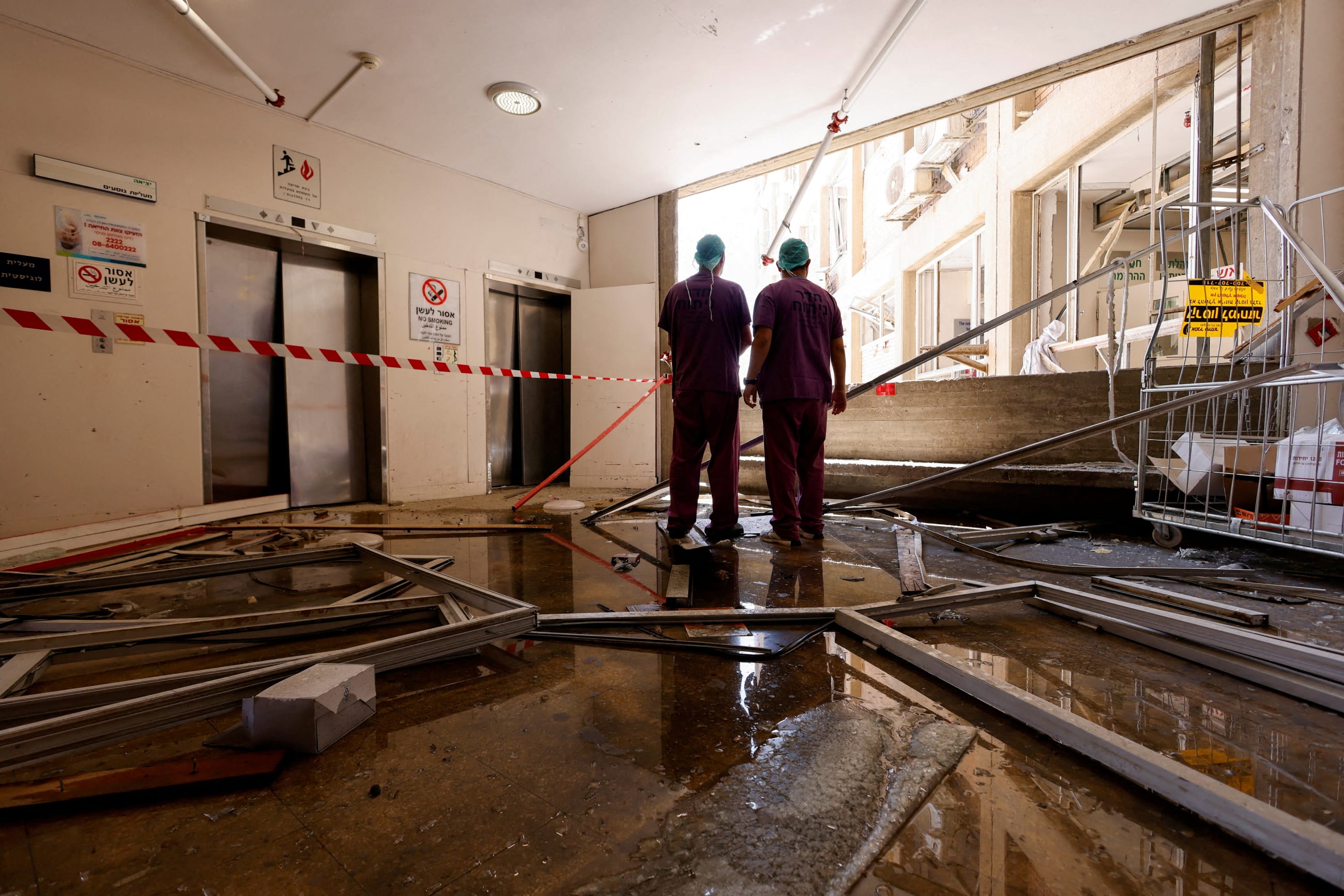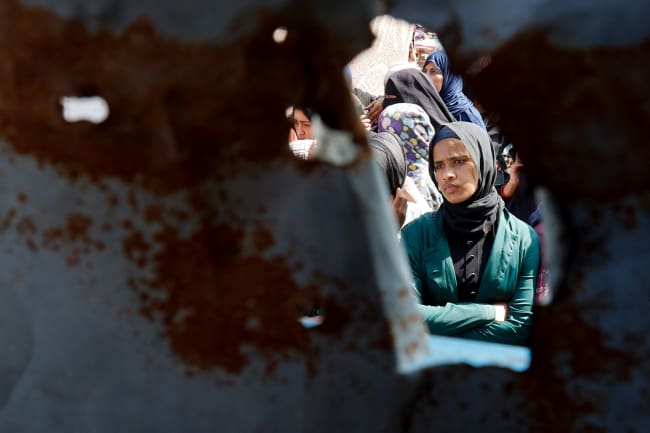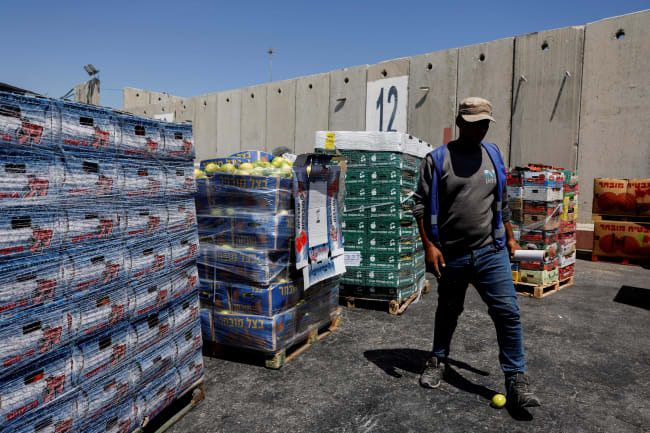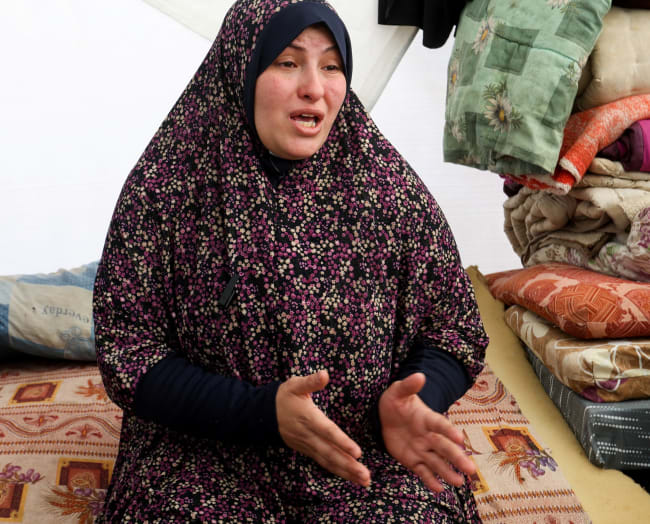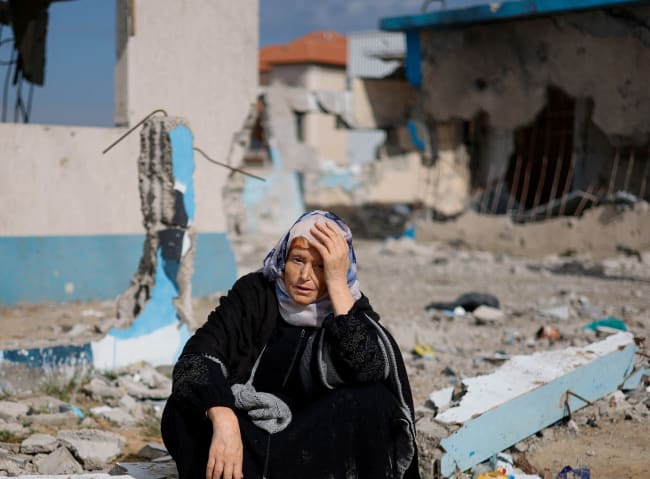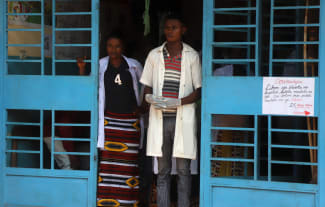On June 18, an Iranian missile struck Soroka Medical Center in Beersheba, Israel, damaging the hospital and injuring dozens. The hospital temporarily stopped accepting nonemergency cases, and must undergo repairs to return 100% to its pre-attack status. Iran claimed it had targeted nearby military facilities. Western media dismissed this claim, although according to the Jerusalem Post the hospital is in "close geographic proximity" to "the IDF's Telecommunications Division . . . with thousands of soldiers, non-commissioned officers, and officers serving there."
Israel's Defense Minister Katz was outraged, declaring such attacks "war crimes of the most serious kind," and called Iran's Supreme Leader "the modern Hitler." "Without question," Katz judged, "this man should not continue to exist."
Yet he did not remind reporters that two days earlier the Israeli Air Force had bombed Farabi Medical Center in Kermanshah, Iran, destroying the intensive care unit and wounding several patients.
Whether the attacks on Soroka and Farabi were war crimes is ultimately a question for investigators. But Katz's point is correct: Attacks on hospitals, which are subject to special protections under international humanitarian law, are war crimes of the most serious kind.
That is why we—along with American and British health-care workers who've worked in Gaza, American senators and representatives [PDF], lawyers and civil servants [PDF] in the Joe Biden administration and the UK, UN experts, and Holocaust and genocide scholars—have been begging the United States to stop providing the weapons Israel has used not just to attack one hospital in Gaza but to demolish the strip's entire health-care system. Indeed, over the past 20 months Israel, fully backed by the United States, has abandoned any pretense of respecting the protections enjoyed by hospitals under international law.
Attacks on health care have become more frequent throughout the last decade, and perpetrators have enjoyed near total impunity from legal consequences. As reported in May by the Safeguarding Health in Conflict Coalition, in 2024 at least 3,623 such attacks [PDF] were conducted worldwide. Of those attacks, approximately one-quarter—940—occurred in the Gaza Strip, where 0.03% of the world's population lives.
Attacks on health care have become more frequent throughout the last decade, and perpetrators have enjoyed near total impunity from legal consequences
Since the Hamas-led attacks of October 7, 2023, Israeli forces have struck health-care facilities and personnel in Gaza at least 1,844 times, killing hundreds of patients and health-care workers. According to the World Health Organization, 94% of hospitals in Gaza have been damaged or destroyed. All are starved of the most basic medical supplies, electricity, and even clean water.
The 1949 Geneva Conventions—signed by the United States and Israel—specify that the protections hospitals enjoy are lost only if hospitals are used to commit "acts harmful to the enemy." Moreover, these protections cease only after due warning has been given to the offending party, naming, in all appropriate cases, a reasonable time limit to cease the military use.
An attack can commence only after the warning has gone unheeded. Even then, the attacker must take "all feasible precautions" to minimize harm to patients, staff, and the hospital and adhere to the principle that civilian harm not be disproportionate to the military advantage gained in the attack. Furthermore, the Geneva Conventions specifically state that the "fact that sick or wounded members of the armed forces are nursed in these hospitals . . . shall not be considered to be acts harmful to the enemy."
Israel virtually always justifies attacks on hospitals by accusing Hamas [PDF] of having militarized these facilities. Feroze, along with all foreign health-care providers who have volunteered in Gaza, has never seen Palestinians use a hospital for military purposes. It is impossible to prove that Palestinian armed groups have never used a hospital illegally, but independent investigators have found insufficient evidence for such claims, which are often exaggerated, vague, or contradicted by publicly available evidence. In many more cases, Israel did not even claim the hospital was used to commit "acts harmful to the enemy," and in no case did Israel make any pretense of giving a meaningful warning to cease the alleged misuse.
Nor does Israel take "all feasible precautions" to protect the hospital or its staff so that they can continue treating the sick and wounded. On the contrary, in many cases the Israel Defense Forces (IDF) fired explosive weapons directly into crowded patient rooms and emergency departments, engaged in wholesale and arbitrary arrests of hundreds of doctors and nurses, and left entire hospitals without electricity or even water.
How many patients have died from this imposed medical neglect is unknown, but in the sieges of just three hospitals from November 2023 to March 2024—Shifa, Kamal Adwan, and Nasser—at least 84 patients died from lack of care.
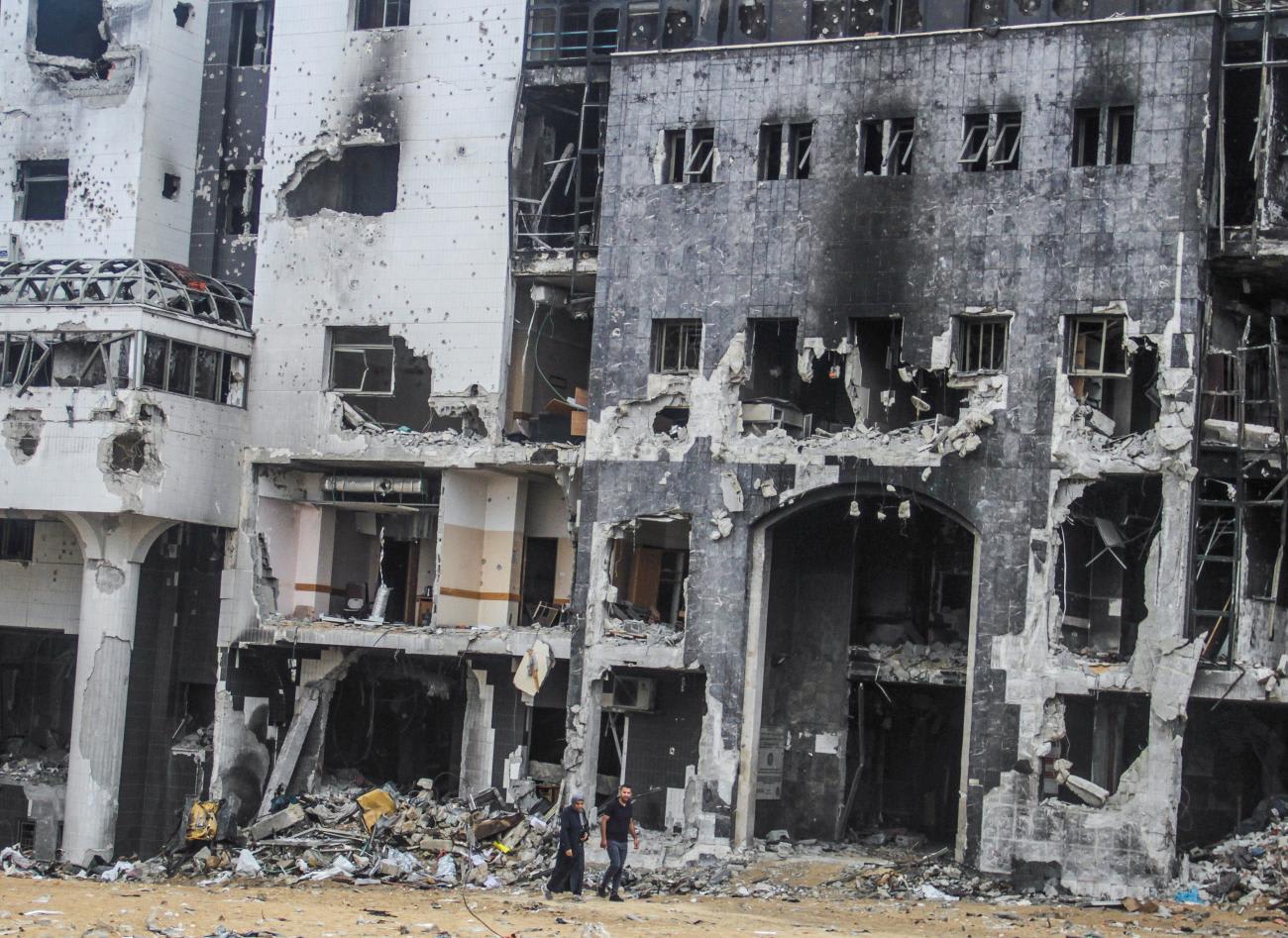
No misuse of a hospital could justify a wanton assault that destroys the entire facility, forces it to close, or undermines its proper functioning, let alone a systematic attack on Gaza's entire health-care system. These attacks have left an entire society without access to basic services such as obstetric care for pregnant women, management of chronic diseases, or trauma and reconstructive surgery for tens of thousands of seriously wounded people, half of whom are children. The most basic health-care services that are readily available in even the poorest of countries do not exist in the Gaza Strip today.
The brazenness of Israel's assaults and the lies told to justify them cannot be overstated. For example, on March 23, Feroze was volunteering at Nasser Medical Complex in the Gaza Strip. Around 9 pm, he went to see Ibrahim, a 16-year-old recovering from shrapnel injuries to his colon, who was scheduled to be discharged in the morning.
Suddenly, Ibrahim's room exploded. Israel said it used "precise munitions" to kill Ismail Barhoum, a 56-year-old Hamas politician who Israel claimed was Gaza's prime minister since his predecessor's assassination five days earlier. The blast killed Ibrahim and destroyed the entire men's surgical ward. Israel's spokesman claimed that "Barhoum was in the hospital to commit acts of terrorism," but, as Feroze witnessed, he was simply a patient admitted a few hours before he was killed. On May 13, Israel bombed Nasser again, this time to kill Hassan Aslih, a wounded photojournalist, and again destroyed the entire men's surgical ward after it had been moved to the third floor.
Even if Barhoum and Aslih could somehow be considered members of Palestinian armed forces, their presence clearly did not constitute "acts harmful to the enemy." Even if it did, firing explosives into surgical wards overflowing with wounded civilians and health-care workers flouts the duty to take "all feasible precautions" to minimize collateral harm.
On November 1, 2023, the Turkish Friendship Hospital, Gaza's only specialized cancer center, closed after repeated shelling and a blockade on electricity and fuel. Four patients died in the evacuation. Human Rights Watch "was unable to find any published information from Israeli authorities . . . providing any advance warning to the hospital or a legal basis for the attacks." On March 21, Israeli forces simply blew up the entire hospital and the adjacent medical school. Israel made no attempt to justify the wholesale detonation of an entire medical center beyond claiming it had been turned into "terror infrastructure."
On April 13, Israel bombed Ahli Baptist Hospital after giving 20 minutes' notice to the hospital administration, at 2:00 a.m., to evacuate all patients and staff. The IDF claimed that the only open hospital in Gaza City, operated by the Episcopal Church of Jerusalem, was a "command and control center used by Hamas," a claim that hospital director Suhaila Tarazi "firmly denied." The explosion collapsed a ceiling onto an American orthopedic surgeon, and an oxygen-dependent child died in the rushed evacuation. Israel claimed to have used "precise munitions" to minimize damage to the hospital, yet destroyed the hospital's emergency room, paramedic's office, ambulance bay, blood bank, and chemistry lab.
It marked the fifth bombing of Ahli Baptist since October 2023. On June 5, the IDF bombed the hospital for the sixth time, killing four journalists and a man taking his son for a planned operation. Israel said it "precisely struck" a "terrorist" operating from a command center.
Beyond the flagrant disregard for the protection of hospitals, the sheer scale of Israel's attacks on Palestinian health-care workers in Gaza is staggering.
Prior to the October 7 attacks, Russia's invasion of Ukraine was the deadliest conflict for health-care workers in the world. According to the UN Humanitarian Data Exchange 186 health-care workers were killed by Russian forces in the first 36 months of the invasion.
By comparison, in the 15 months from the October 7 attacks to the January 19, 2025, ceasefire, Israeli forces killed 609 health-care workers in Gaza. Adjusting for population—Ukraine's was 41 million [PDF] in 2022, and Gaza's was 2.2 million [PDF] in 2023—allows one to gauge the magnitude of harm: The population-adjusted rate of injury to health-care workers was 46 times higher, the rate of killing of health-care workers was 143 times higher, and the rate of incidents that obstructed access to health-care facilities was 250 times higher in Gaza than in Ukraine.
One war crime never justifies another. But Israeli leaders—and their American supporters—cannot feign outrage over Iranian war crimes when their own forces disregard the law with such impunity and constantly dissemble and obscure the truth while carrying out one of the most direct and systematic attacks on a health-care system in recent memory.
Protections for health care in conflict must be restored, universally. Hospitals and health-care workers must be protected, in the Gaza Strip and throughout the world, or this descent into barbarism will continue. Accountability must reign over crimes committed by all parties, including through international criminal prosecutions.
If the United States is a country of laws, then American legislation barring the supply of arms to obstinate human rights abusers must be enforced. In our opinions, the United States must stop arming Israel until it allows Gaza's hospitals and health-care workers to do their jobs without fear of death, allows unimpeded humanitarian access to Gaza, and returns to the January 19 ceasefire framework to facilitate the return of all hostages to their families.
